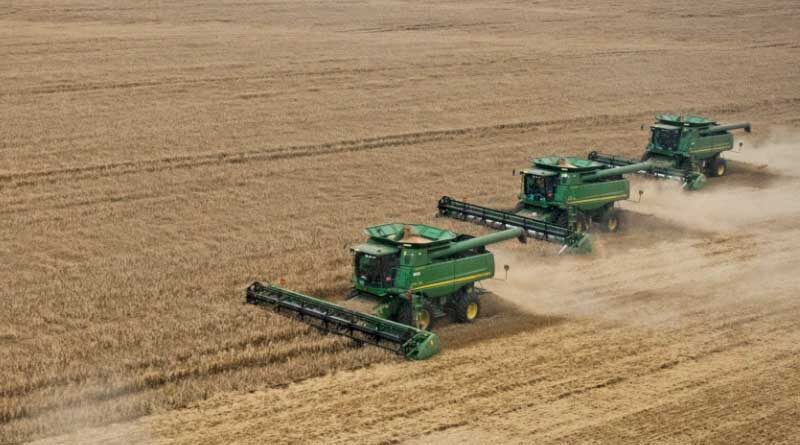Fields of research that’s now more vital than ever
24 May 2022, UK: “For a country such as Scotland which has a reputation for high quality food and drink brands built on its natural, high-quality environment; we need to consider how conventional systems using potentially more chemical inputs will fare against similar systems from countries that are using precision breeding”
By Prof Colin Campbell, Chief Executive, James Hutton Institute
Last week in the Queen’s speech, it was announced that the UK Government would be bringing forward a new Genetic Technology (Precision Breeding Bill). Unless you work in the agricultural sector, the significance of this may have prompted a ‘so what? moment for most readers.
However here at the James Hutton Institute, situated near Dundee; we welcomed news of this Bill. Why? Because it has the potential to make a steady food supply chain a reality in the future, critical in this crisis time of climate change, pandemics and the rising cost of food production.
We are recognised as being world-leaders in this area of science and research; where we study land, soils, water, environment and how this impacts upon, and is affected by, people and communities. We explore different techniques to understand crop growth, and then apply this knowledge to produce new varieties of crops. Our research can be seen in action with the introduction of new types of berries and potatoes in the UK and abroad, to cope with changing environmental and economic conditions.
We know that this research is needed now more than ever: Scotland is predicted to be getting warmer and wetter which will mean an increase in pests and diseases such as potato blight. In other countries, the climate is expected to get hotter and drier and there will be less water available for growing. To reduce our carbon footprint, we need more stringent environmental targets and to reduce our reliance on the use of fertilisers and biocides. We need to grow food closer to home more reliably and using cultivation practises that supports greater biodiversity. To gain this knowledge in time, research needs to be carried out at pace.
Farmers have been crossing and selecting crops since the Stone Age. Most of our research is carried out using such conventional breeding. The problem with this is we rely on trial and error and many growing cycles over 10 to 15 years. Given the urgency of the climate crises we simply don’t have the time for this.
One of the new techniques we use is ‘precision breeding’, also known as gene editing. This technique has been likened to genetic scissors because it can precisely target a specific region on the plant’s DNA without affecting other parts. It can be used to knock out genes which canprevent disease or alter the plant’s metabolism and thus boost the levels of natural health-protecting chemicals in the plant. The changes in the genetic sequences are done in a precise way so the hard-won gains achieved by conventional breeding are unaffected.
Until this announcement of the new Bill, this type of breeding modification was subject to the same regulations as techniques associated with genetic modification (GM) which use less precise techniques and insert DNA sometimes from other species.
Crops derived through precision breeding don’t have any DNA from other species inserted into them and are indistinguishable from crops bred conventionally. The benefits will ultimately need to be proved scientifically and consequences assessed, and this can only be done by field trials across a variety of soils and climates to ensure a full evaluation is made. The new Bill will help do this.
Researchers in England will now be able to do field trials on such precision bred crops, selecting the best ones to grow more climate positive and more economically viable varieties which is particularly valuable considering this week’s warnings around food supplies.
But, the legal position in Scotland remains the same as the EU stance and precision breeding remains subject to GM regulations.
Time is not on our side, and we need our agricultural sector to be able to grow food locally, consistently against worsening weather and that has benefits to growers, all parts of the supply chain, consumers and society. For a country such as Scotland which has a reputation for high quality food and drink brands built on its natural, high-quality environment; we need to consider how conventional systems using potentially more chemical inputs will fare against similar systems from countries that are using precision breeding, and whether this impacts upon the balance of consumer perceptions when it comes to relative environmental benefits.















